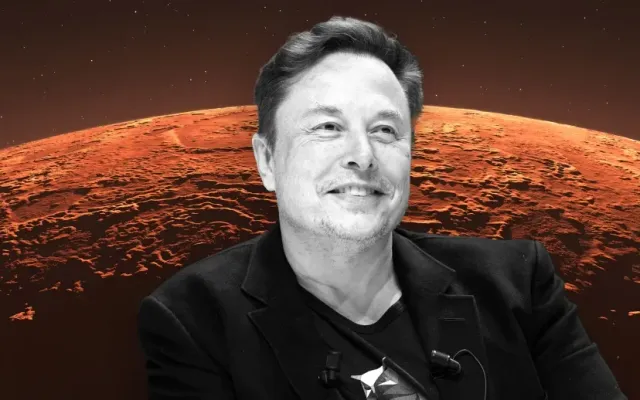The billionaire has been publicly warring with the U.S. space regulator over fines and delays with an onslaught of criticism on X, blog posts and letters to Congress.
After days of feuding with the Federal Aviation Administration, Elon Musk, the billionaire CEO of the rocket company SpaceX, ratcheted things up yet again. This time, he took aim at FAA head Michael Whitaker.
“He needs to resign,” Musk wrote last week on X, the social platform he owns.
Musk called out Whitaker for alleged inaccuracies the administrator made about SpaceX during an unrelated hearing the day before, where he defended delays the FAA imposed on an upcoming SpaceX Starship launch. The FAA had licensed the launch for later in November, months after SpaceX’s desired mid-September timeframe.
Whitaker said the delay had to do with permitting laws and an environmental analysis around sonic booms, which the launch could create when it attempts to return the rocket booster to earth — a first for space flight. But SpaceX claimed the situation could have been fixed by a “paperwork update” instead of a two-month delay.
The dustup was the latest salvo in an escalating battle between Elon Musk and the FAA about launch dates and fines related to alleged SpaceX launch violations over unauthorized plans. Adding another layer to the spat: Musk could hypothetically become a regulator himself. Former President Donald Trump has floated the idea of tapping Musk to run a new committee on government efficiency, should he win a second term in November. The body would perform internal performance and financial audits on the federal government. The possibility should be taken with a grain of salt, but Musk, a Trump ally, has said he’d be interested in the role with “no title, no pay.”

SpaceX’s feud with the FAA may be core to Musk’s interest in government efficiency. “Unfortunately, we continue to be stuck in a reality where it takes longer to do the government paperwork to license a rocket launch than it does to design and build the actual hardware,” the company wrote in a a 2,000-word blog post titled “Starships Were Meant to Fly” that slammed the FAA for the launch delay. “This should never happen and directly threatens America’s position as the leader in space.”
SpaceX and the FAA did not return requests for comment.
Big companies face off with regulators all the time. But Musk, with his megaphone of almost 200 million followers on X and his penchant for bluster, has been particularly pugilistic, with a steady stream of missives on X and letters to Congress over the last week. It’s generally a bad idea to feud with regulators who “could make life miserable,” said Harry Kraemer, a professor of management and leadership at Northwestern University’s Kellogg School of Management. “It’s the last thing a company really ought to be doing. You’re asking for a headache,” said Kraemer. Musk persists, he added, because of his “ego.” “He doesn’t think the rules apply to him.”
The FAA, created in 1958, sits within the Department of Transportation, and regulates civil aviation in the U.S. Its duties include air traffic control, flight inspection standards and drone regulation. The agency undertook regulating space travel in 1995 when the Office of Commercial Space Transportation, established in 1984, was transferred into the FAA as the agency’s only space-related entity.
“We don’t need another bully like Boeing. It’s time for the FAA to do its job.”
Along with SpaceX, other players in the commercial space industry have questioned the FAA’s ability to keep up as the sector has grown. In October, Blue Origin, the rocket company established by Amazon founder Jeff Bezos, called out lagging operations at the agency during a hearing with the Senate Subcommittee on Space and Science. “Congress and the FAA helped accelerate the development of the commercial space launch industry, and now the FAA is struggling to scale with the cadence of operation,” Phil Joyce, a senior vice president at the company, said during testimony. “Streamlining regulations and administrative processes and exploring the possibility for increased training opportunities will help utilize resources more efficiently.”
Meanwhile, Musk is warring with the FAA on another front as well. Two weeks ago, the agency announced proposed fines for SpaceX, worth more than $630,000, related to unapproved plans used during two rocket launches last year. The first incident, from last May at Florida’s Cape Canaveral, was over a revised communications plan, in which SpaceX added an unauthorized new launch control room and removed a readiness poll from its procedures. Two months later, SpaceX used an unapproved rocket propellant facility as its fuel supplier at a launch at the Kennedy Space Center, the FAA alleged.
In response to the citations, Musk took to X to threaten legal action against the FAA for “regulatory overreach,” calling the move “lawfare.”
Musk’s accusations contrast from past criticism of the agency, which has been called out for lax regulation of the aircraft industry. Last week, a Senate subcommittee faulted the FAA’s oversight in part for a door panel blowing out on a Boeing jet during an Alaska Airlines flight in January, raising questions about the agency’s safety review. The FAA seems to be taking a different tack with SpaceX, which is a welcome change, Jim Hall, a former chairman of the National Transportation Safety Board, told Forbes.
“We don’t need another bully like Boeing,” he said. “It’s time for the FAA to do its job. It hasn’t in the past, particularly as it has pertained to Boeing.”
A day after the FAA levied the proposed fines, the company sent a letter to the heads of both Senate and House committees overseeing commercial space regulation, aiming to rebut each penalty. When SpaceX posted the letter on X, the company noted that it has been voicing concerns against the FAA for nearly two years for its “inability to keep pace with the commercial spaceflight industry.”
“The Commerce Committee has received SpaceX’s letter responding to the allegations levied by the FAA in its civil penalty notices and will evaluate whether federal agencies are appropriately structured and resourced to facilitate commercial space travel,” a spokesperson for Sen. Ted Cruz, ranking member of the Senate committee, told Forbes in a statement. He added that Cruz would advocate for policies to “minimize unnecessary bureaucratic interference and delays” regardless of this particular dispute.
The Democratic staff of the House science committee declined to comment. The offices of Sen. Maria Cantwell, Rep. Zoe Lofgren and Rep. Frank Lucas — who also head those committees — did not return requests for comment.
Now, Musk is seeking to move the issue out of the realm of policy wonks. The billionaire, who has increasingly moved to the political right over the last few years, earlier this month bashed Vice President Kamala Harris’s presidential run on X. One reason? He has argued government bureaucracy under Harris would impede SpaceX’s lofty mission making humans an interplanetary species. “This would destroy the Mars program and doom humanity,” he wrote. “This is a fork, maybe the fork, in the road of human destiny.”
Later in the week, SpaceX was back to putting out its normal promo on X, posting stunning photos of its Flight 5 Starship at sunset. Musk quote-posted it with an apparent typo in his caption: “Starships were mean to fly.”





